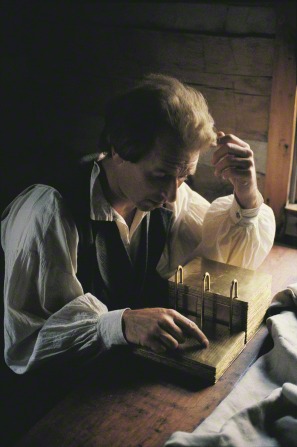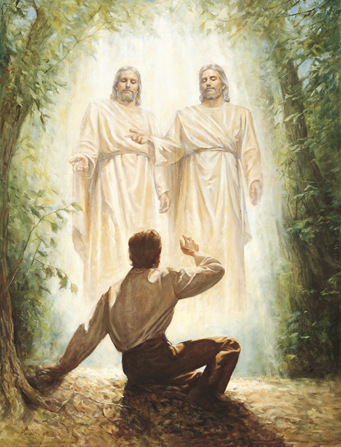by: Norberto Betita
Early morning after the super typhoon Yolanda ended her
fury, my heart was full of gratitude in prayer to God, who is the master of the
elements, for His providence in protecting and safeguarding us from the very disastrous
typhoon. It was earlier reported to be the strongest typhoon to hit the
Philippines for the year 2013 and later reported to be the strongest in the
world history at 315 kilometers per hour (195 mph). By my long experiences of
typhoons in in our Province of Surigao del Norte, in one look at our vicinity I already sensed that
there is not so much destruction in Surigao City. The typhoon was short-lived and launched her
ferocious passion only for about two and a half hours.
As a counselor in the Mission Presidency of the Church of Jesus
Christ of Latter-Day Saints assigned to oversee the Surigao District of the
Church, I immediately awaken my son and my son-in-law for us to make our rounds
and visits to the members who might have been affected by the super typhoon
Yolanda, and those people in the meetinghouses which were used as evacuation centers.
After our visits and meetings with
Branch Presidents trying to comfort them and expressing sincere gratitude for
their service in shepherding the flocks, despite their own needs, I went home with my son. I was a bit downhearted.
My son told the family that I had been in altercation with a
full-time Church employee. My daughter-in-law laughingly reminded, “Pa, did you
take your medicines?” My wife and daughters laughed at me as if to scorn, telling
me that I am kind of being hit by a typhoon stronger than Yolanda. While I was
preparing our food for lunch, as it was my assignment, my children and daughter-in-law
continued teasing me. My daughter-in-law jokingly told my wife and daughters, “Papa,
is putting all his anger on the pork meat he is slicing.” Until we have our
lunch we laughed together as I related to them the story of such an undesirable
experience while doing service to God and His people.
Even in such
situations the family are used to throw jokes on me because it is not in my
nature and person to easily get angry, especially in family settings. I am
generally the home pacifier. But they knew that I am a protector of those who
might have been abused. Hence, it was no surprise to them that I would react in
favour of a faithful Branch President who had been insulted and branded as mistrust by a full-time church employee, while in the height of his concerns for the welfare of the evacuees---members and non-members---who were at the church.
 Like the Lord
Jesus Christ who “cast out all them that sold and bought in the temple, and
overthrew the tables of the money changers, and the seats of them that sold
doves” for making the temple “a dean of thieves” (Matthew 21:12-13), mine
temperance seemed to also reach its limits. Yet I have a clear consciousness
that it is not proper for me an ordinary being to be angry for whatever reason.
I might have justified my anger by the words found in Matthew, “That whosoever
is angry with his brother without a cause shall be in danger of the
judgment.” (Matthew 5:22). I have a cause and a good reason to be angry in
defence of a brother. But the clause “without a cause” was already omitted in
Matthew 5:24 JST and the same clause is not part in 3 Nephi 12:22, which read: “But
whosoever is angry with his brother shall be in danger of the judgment...”
Like the Lord
Jesus Christ who “cast out all them that sold and bought in the temple, and
overthrew the tables of the money changers, and the seats of them that sold
doves” for making the temple “a dean of thieves” (Matthew 21:12-13), mine
temperance seemed to also reach its limits. Yet I have a clear consciousness
that it is not proper for me an ordinary being to be angry for whatever reason.
I might have justified my anger by the words found in Matthew, “That whosoever
is angry with his brother without a cause shall be in danger of the
judgment.” (Matthew 5:22). I have a cause and a good reason to be angry in
defence of a brother. But the clause “without a cause” was already omitted in
Matthew 5:24 JST and the same clause is not part in 3 Nephi 12:22, which read: “But
whosoever is angry with his brother shall be in danger of the judgment...”
The Lord is
the lawgiver and He has that right to chastise those who are subject to His
laws. No matter the circumstances I needed to hold on to temperance and
sobriety. But I chose to be angry and so become downhearted unto repentance by
the guilt of submitting to the deceiving tactics of the Devil.
The Lord made it clear, “For very, verily I say unto you, he
that hath the spirit of contention is not of me, but is of the devil, who is
the father of contention, and he stirreth up the hearts of men to contend with
anger, one with another. Behold, this is not my doctrine, to stir up the hearts
of men with anger, one against another; but this is my doctrine that such
things should be done away.’ (3 Nephi
11:29-30.)
In my associations with people, I always maintain a personal
atmosphere of solemnity. When I am in groups, even in the Church I seldom talk.
But when I talk, I always make it sure that I follow the words of the wise King
Solomon, “A word fitly spoken is like apples of gold in pictures of silver.”
(Proverbs 25:11.)
However, since I was in my youth, it’s been my nature to be
a defender of the weak. In college, I always help the weaker students who were
insulted by ostentatious scholarly learners. At work I usually establish a
harmonious and peaceful atmosphere with colleagues. When my subordinates are
threatened, and I know I have legal reasons to defend them, I stood against the
wiles of management. When I became a
member of the Church, I get my feet strong under continued ridicule and mockery
from associates, friends and relatives in defence of the image of the Kingdom
of God, which truth I bear witness. And
in many such situations, I often broke in anger. I am grateful though that from
such bright and sheer consciousness of getting angry, I had long since learned
to muster “line upon line, precept upon precept, here a little and there a
little,” (2 Nephi 28:30) the principle of sobriety, solemnity, harmony, and
peace, especially in our home and family. I understood better that I should
love my wife and “be not bitter against” her, and I should not “provoke” my “children
to anger.” (Colossians 3:19, 20.) I long since realized that I cannot “be...angry,
and sin not.” (Ephesians 4:26.) But I have to admit that perfection is still a
long, winding and extended highway to walk and a high mountain to climb.








